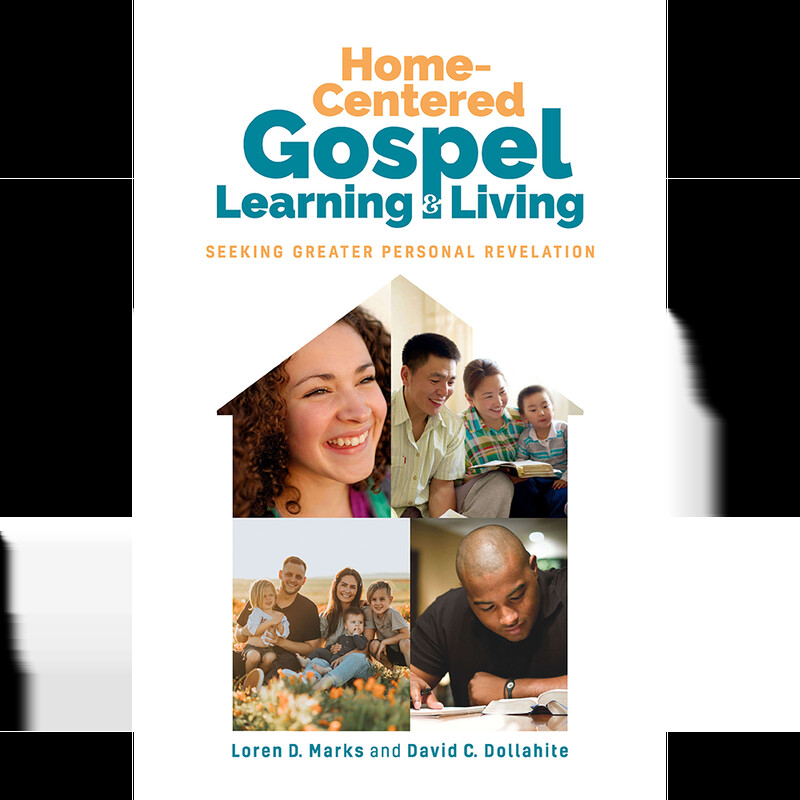Near the end of his life, the Prophet Joseph Smith stated, “I don’t blame anyone for not believing my history. If I had not experienced what I have, I could not have believed it myself.”1
Joseph Smith was a person whose prayer of faith opened the heavens. If someone with such strong faith could admit that his story sounded unbelievable, then we should be very careful about what we expect others, including our children, to believe without the benefit of personal spiritual experiences of their own.
Note that Joseph said he “could not” (rather than “would not”) have believed it. Perhaps Joseph needed the kind of proof that can come only from personal experience.
One Creative Way Families Can Experience Revelation
While many of Joseph’s revelatory experiences were given when Joseph was alone (for example, the First Vision and the appearances of Moroni), many were given in the presence of others, oftentimes scribes, and there were times when others shared the revelatory experience with him, such as the vision of the three degrees of glory shared with Sidney Rigdon (see Doctrine and Covenants 76).
These examples suggest how important it is to structure our family life—especially the religious aspects—in ways that are more likely to facilitate family members having spiritual experiences that can lead to deep and lasting conversion.
The following from one of our students who wrote about a Sunday practice in her family is shared with her permission:
When I reflect back on the years I spent living at home and how we spent our Sundays, I can distinctly remember “power hour.” Power hour was held at a designated time every single Sunday. This hour was for each member of my family to individually do something that helps increase your spirituality and helps you feel/grow closer to the Lord.
This could be [Young Men or Young Women related projects], indexing, studying scriptures, family history work, journaling, . . . etc. This looked different to everyone, because it was a personal and prayerful thing for each person. Truly anything that helped you feel the Spirit and feel the reverence of the Sabbath day. All my parents asked of us was one hour.
There were a few things that I loved about power hour. The first is the feeling that came into our whole home. There truly is a power that comes when every member of my 7-person family is quietly spending time learning of our Savior and Father in Heaven simultaneously. Our house would be silent, and there would be no interactions between anyone, but everyone could feel of that power. A power that united our family closer together, a power that brought the Spirit so strongly into our house, a power that removed any contention and invited light, and a power that helped us closely feel of our Savior’s love.
Another thing I loved about power hour is how my parents were fully involved in it as well as the children. It wasn’t a “Go do it, kids, so you leave us alone for an hour after church to take a nap.” It was a full family event, and every single person was involved. This experience would not have had the same powerful effect if my parents didn’t participate with all of us.
Sacrifice is an important part of our church, and power hour was a great way to incorporate this principle in our lives. No phones, no games, no naps, just one simple hour dedicated to the Lord. This principle instilled a love for the Sabbath day inside of me as a young kid, because I saw what careful observance of this day did for my family. We were strengthened and happier and better because of it.
We find this kind of family-supported but agency-honoring approach to fostering personal study and worship instructive and inspiring. Note that it is simultaneously firm and flexible.
We share our personal witness that there is a potential in imperfect but sincere and faithful home-centered worship of the Father—a potential that refines our ability to welcome, recognize, hear, and respond to the power of God that flows through revelation. This revelation guides, lifts, directs, and heals us as we progress along the covenant path.
Graciously and mercifully, this covenant path of faith, revelation, action, and Christ-inspired concern for others will lead us forward so that our home-centered efforts here will culminate in a joyous and eternal return “home to that God who gave [us] life” (Alma 40:11; see Helaman 3:29–30).
Home-Centered Gospel Learning and Living
For more ideas on inviting the spirit into your home, check out the articles below:
▶ 3 simple ways to help foster good feelings in your family
▶ Weave strong relationships with children who question or leave the Church with these practical steps
▶ Elder Cook’s 3-step advice for raising families in a difficult world
▶ 1 question to ask to keep your family gathered around the Sunday dinner table
Notes
1. Joseph Smith, “History, 1838–1856, volume E-1 [1 July 1843–30 April 1844],” p. 1979, The Joseph Smith Papers.


